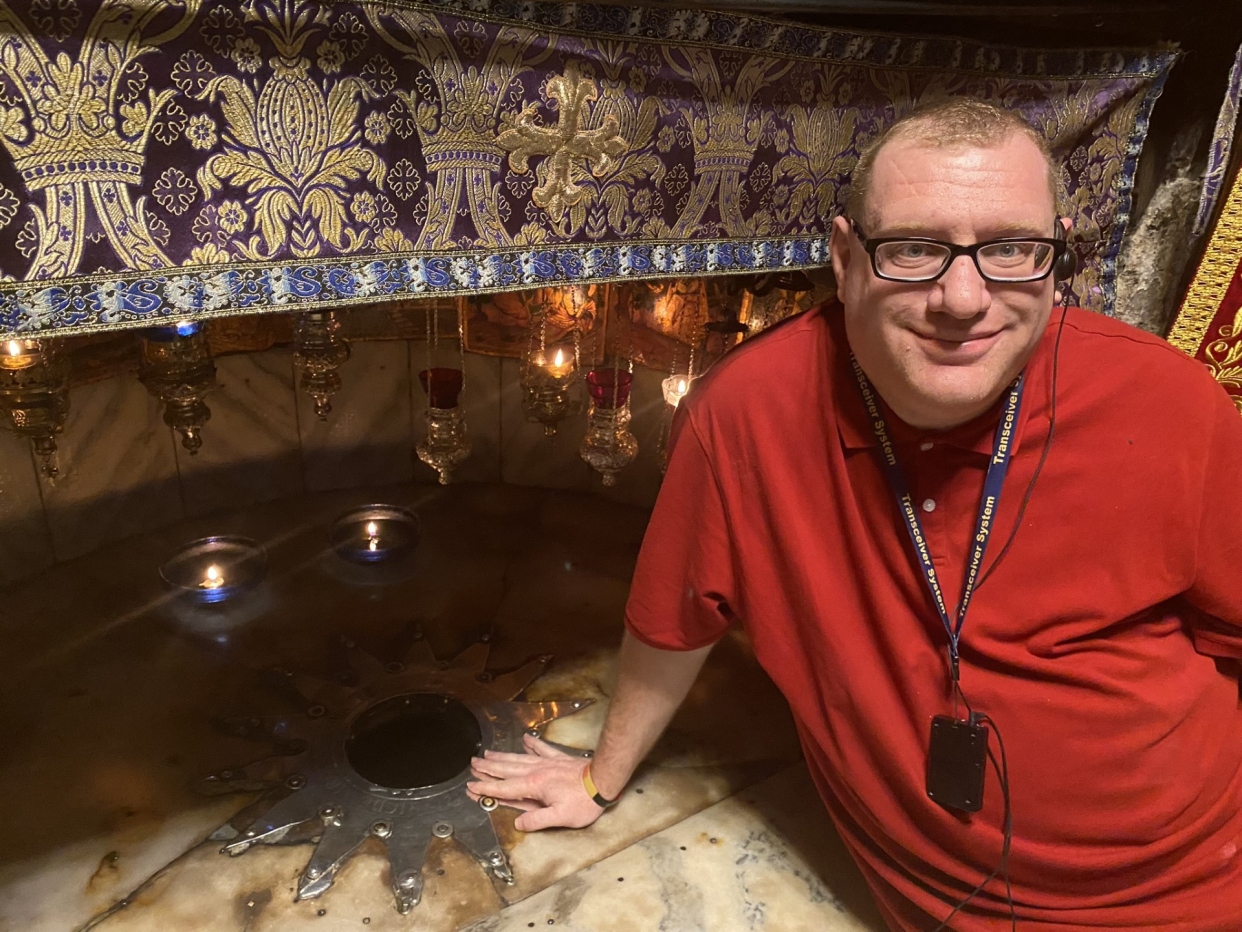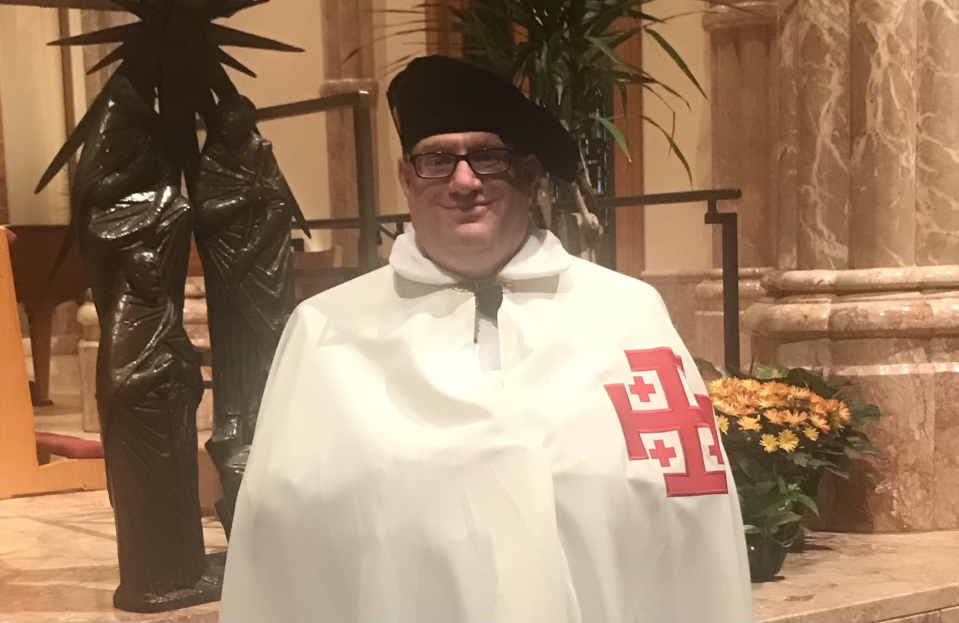A pilgrimage to the Holy Land increased my appreciation of America

This past Lent I had the privilege of visiting the Holy Land with my fellow Knights and Dames of the Equestrian Order of the Holy Sepulchre of Jerusalem, a papal order of Catholic Knighthood of pontifical status headquartered at the Vatican.
The order was established in 1099 by Godfrey de Bouillon in an attempt to protect Christian Holy sites.
Today, the primary purpose of the order is to support the Christians in the Holy Land both spiritually and financially. We support the Latin Patriarch of Jerusalem whose diocese includes all of Israel, Palestine, Jordan and Cyprus.
One of the duties of the order’s members (which is for both men and women) is to make a pilgrimage to the Holy Land at least once in a member’s lifetime. On this pilgrimage, you visit all the towns where Jesus lived and ministered at such places as Nazareth, Galilee, Capernaum, Mount Tabor, Bethlehem and Jerusalem.
I visited these places, including the Church of the Holy Sepulchre where it is believed to be where Jesus was crucified, died, buried and rose from the dead. A site so sacred to so many Christians from all over the world.

Another aspect of the pilgrimage is visiting the various works of the order such as Bethlehem University. I was shocked to learn that the student population of Bethlehem University is 78% Muslim women.
Bethlehem University is a Catholic university of higher learning. While I was there for lunch, I got to know some of the Christian students who attend.
It may interest you to know that while all Palestinians are Arabs, not all Palestinians are Muslims, about 2% of the Arab population are Arab Christians. Most of the Arab Christians that I met can trace their Christian roots all the way back to the time of Jesus.
Most of the Christians in the Holy Land live in Bethlehem and now are a shrinking minority. Many Christians have left the region due to civil unrest and tensions, as well as political violence and discrimination against them for being Christians and for economic reasons.
While eating lunch at Bethlehem University, I talked with the students about daily life and being a Christian in the Holy Land. They told me of the challenges they face such as turnstiles, checkpoints and high security. Tensions are a normal way of life for them. They sometimes have to apply for a visa just to go to school and there is no guarantee they will get it.
I remember going into Bethlehem with no problem. Foreign visitors generally breeze right through with little trouble. Coming out was a different story and experience. I remember seeing on one side Israeli political art and Palestinian political art on the other.
At the gate, Israeli troops are stationed and got on our tour bus and wanted to see our visa or passport. It is just everyday life in the Holy Land — land where there are so many problems both political and religious and with no easy answers or solutions.
After I got home and a week after my pilgrimage was over, I began to think to myself how blessed I am to be an American. If I want to go to another state like Indiana or Pennsylvania, all I have to do is get in the car and go. I don’t need to apply for a government visa and have to wait for it to be approved and then there is no guarantee I will get it.
I don’t have to live with the above-mentioned travel impediments. If I want to go to church, I have no one stopping me from doing so.
You might as well say that this Christmas I’m even more grateful to be an American. After visiting the Christians in the Holy Land and seeing their daily struggles makes me thankful for all I have and what I don’t have.
My pilgrimage to the Holy Land, you can say, increased my American patriotism.
Yes, we as Americans are not perfect. We struggle and have many disagreements and at times can get at each other’s throats, however we should be thankful we are able to do so. I think we forget how blessed we are as a nation and take all that we have for granted.
We take so much for granted that we forget some people can be jealous of what we have.
After my visit to a troubled part of the world and as we prepare to celebrate Christmas, let us all be thankful to be Americans and remember that some have it worse than us. May we all be prouder Americans this Christmas.
Paul A. Crowley lives in Waynesburg.
This article originally appeared on The Repository: Paul Crowley writes about his visit to Jerusalem and patriotism

